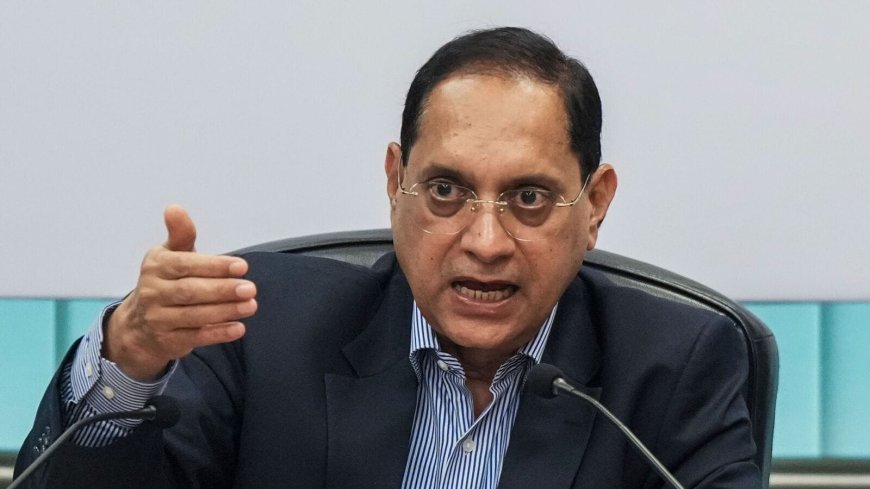Mint Explainer — What Did SEBI Decide at Its 210th Board Meeting?
SEBI's 210th board meeting introduced major reforms on delisting norms, ESG disclosures, IPO UPI payments, and grievance redressal. Here's what investors need to know.

Introduction: A Crucial Meeting for India’s Capital Markets
The Securities and Exchange Board of India (SEBI) held its 210th board meeting on June 18, 2025, unveiling a suite of important policy decisions aimed at strengthening market integrity, improving transparency, and facilitating ease of doing business in India’s capital markets. From streamlining delisting regulations to ushering in a framework for reverse book building reform and enhancing ESG disclosures, SEBI’s board laid the groundwork for a more investor-friendly and accountable capital market ecosystem.
Let’s break down the key takeaways from SEBI’s board meeting and what they mean for investors, companies, and the broader financial landscape.
1. Revamping Delisting Norms
Key Reform: Exit Price Determination Mechanism Overhauled
SEBI approved a significant overhaul of the reverse book building (RBB) process, the mechanism traditionally used to determine the exit price in voluntary delistings. Under the new framework, bids by minority shareholders will now be assessed using a "fixed price plus premium" method to avoid manipulative or unrealistic pricing, a move that aligns with global best practices.
“This reform aims to strike a balance between fair price discovery and successful completion of delisting offers, which have often failed due to inflated bids,” said Rachit Mehta, a senior capital markets analyst at Axis Securities.
The revised method seeks to make delistings more predictable, addressing the long-standing concerns of promoters and institutional investors about market inefficiencies and speculative pricing in the RBB mechanism.
2. Unified Registration for Intermediaries
What’s New: One-Stop Registration
In a major boost for operational ease, SEBI approved a unified registration mechanism for market intermediaries such as brokers, portfolio managers, and custodians. Under the new approach, entities operating in multiple segments will be allowed to obtain a single SEBI registration, reducing compliance burdens and duplication of regulatory oversight.
“This will simplify regulatory complexity and encourage new entrants, especially fintechs and boutique investment firms, to participate in capital markets,” noted Priyanka Sharma, regulatory expert at PwC India.
3. ESG Disclosures: More Stringent Norms Coming
Key Focus: Assurance of ESG Disclosures and Ratings
To reinforce investor confidence in ESG (Environmental, Social, and Governance) investing, SEBI approved new norms mandating limited assurance of ESG disclosures under the BRSR Core (Business Responsibility and Sustainability Reporting) for the top 150 listed entities by FY27. This will be gradually extended to the top 250 listed companies by FY30.
Additionally, SEBI introduced a regulatory framework for ESG rating providers (ERPs), aiming to bring standardization, transparency, and accountability to ESG scores that influence trillions in investment decisions.
“The move to regulate ERPs mirrors global trends and is essential for the credibility of ESG investing,” said Deepak Mahurkar, partner at PwC India.
4. UPI-Based IPO Payments Extended
Investor-Friendly Move: Ease of Application
To bolster retail investor participation in Initial Public Offerings (IPOs), SEBI has extended the UPI payment mechanism to corporate and municipal bond public issues. This aligns with SEBI’s long-term strategy to digitize and democratize access to capital markets.
“Allowing UPI for bond applications will encourage more participation from small investors, ensuring deeper and wider financial inclusion,” said Nikhil Kamath, co-founder of Zerodha.
5. Enhanced Investor Grievance Redressal Mechanism
Key Improvement: SCORES Platform Revamp
The regulator also approved enhancements to the SEBI Complaints Redress System (SCORES), including timelines for resolution, escalation processes, and a comprehensive reporting dashboard. These upgrades aim to make grievance redressal more efficient and user-friendly for retail investors.
6. New Framework for Passive Funds
SEBI approved a framework that allows mutual funds to launch “passive equity-linked savings schemes” (ELSS), which are expected to offer lower-cost tax-saving investment options compared to actively managed ELSS funds.
“The inclusion of passive ELSS is a welcome move for cost-conscious investors and should drive increased interest in index-linked tax-saving products,” said Kirtan Shah, CEO of Credence Wealth.
Market Context: Reforms Amid Robust Market Growth
SEBI’s 210th board meeting comes at a time when Indian markets are experiencing strong FPI inflows, record-high retail participation, and a boom in IPO activity. The NSE and BSE have touched all-time highs multiple times in 2025, powered by bullish sentiment in sectors like banking, manufacturing, and renewables.
These reforms are expected to further bolster investor confidence, streamline capital raising procedures, and ensure that India’s markets remain competitive globally.
Investor Outlook: What It Means for You
-
Retail Investors: UPI integration in bond markets and enhanced grievance redressal mechanisms will make investing more seamless and safer.
-
Institutional Investors: Clearer ESG disclosures and a more structured ERP system will reduce ambiguity in responsible investing.
-
Corporate Promoters: Easier delisting and streamlined intermediary registration will support strategic restructuring and operational efficiencies.
“SEBI’s reforms indicate a clear push toward transparency, ease of doing business, and inclusive growth in capital markets,” summarized Anshuman Prasad, head of equity strategy at ICICI Direct.
The 210th SEBI board meeting has laid out a comprehensive blueprint to modernize India’s capital markets. With a focus on digitization, transparency, and investor protection, these changes are poised to future-proof Indian markets against global disruptions and inefficiencies. Stakeholders across the ecosystem—investors, issuers, intermediaries, and regulators—stand to gain from a more robust and inclusive financial system.
What's Your Reaction?
 Like
0
Like
0
 Dislike
0
Dislike
0
 Love
0
Love
0
 Funny
0
Funny
0
 Angry
0
Angry
0
 Sad
0
Sad
0
 Wow
0
Wow
0













































































